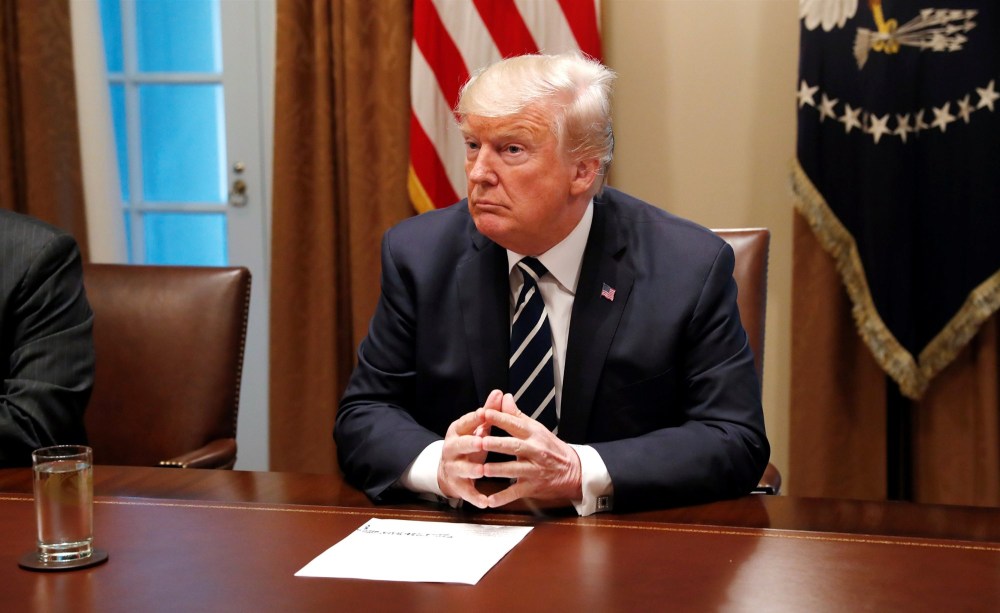Though the president tends to live in a bubble, Donald Trump realized at some level that his press conference in Helsinki on Monday was a disaster. Yesterday, he tried — and failed — to put things right.
First, while reading from a typed script that had been prepared for him, the president made the case that he misspoke while questioning U.S. intelligence while standing alongside Russian President Vladimir Putin. NBC News reported:
“I thought that I made myself very clear, but having just reviewed the transcript…I realized that there is a need for some clarification,” Trump said Tuesday at the White House. “The sentence should have been…’I don’t see any reason why it wouldn’t be Russia’.”
At the Monday press conference with Russian President Vladimir Putin, Trump said about election meddling in 2016: “(Putin) just said it’s not Russia. I will say this: I don’t see any reason why it would be.”
Contextually, this is impossible to believe, since Trump clearly made the case on Monday that he accepts Putin’s denials at face value. Indeed, the president’s attempts at a clarification were based on the idea that the only problem with his press-conference comments was a single word.
But that’s absurd. At the same event, Trump added, “I have great confidence in my intelligence people, but I will tell you that President Putin was extremely strong and powerful in his denial.” Are we to believe the American president misspoke then, too? Perhaps there was another missing “not” that was supposed to be in that sentence?
Making matters slightly worse, I’ve seen some suggestions that Trump also said yesterday that he now accepts U.S. intelligence on Russia’s intelligence operation targeting our elections. That’s not quite what happened. What he actually said was, “I accept our intelligence community’s conclusion that Russia’s meddling in the 2016 election took place. Could be other people also.”
That’s not an endorsement of the intelligence community’s findings. By adding “could be other people also,” Trump made it abundantly clear that he doesn’t fully accept his own administration’s conclusions.












